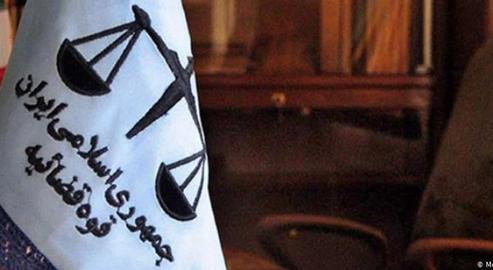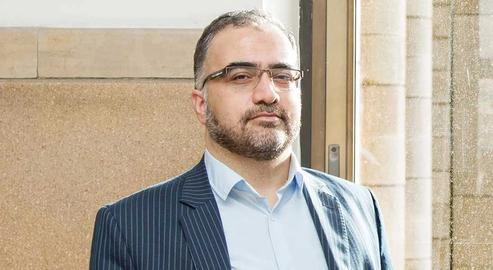In a “top secret” letter recently leaked on social media, Tehran Justice Department ordered that Instagram, Google Play (Android app store), VPNs and filter-breakers be blocked in Iran.
The order was published by Nariman Gharib, a United Kingdom-based activist, on his Twitter account on May 19. It was attributed to Javad Javidnia, a deputy chief of the department.
A few hours later, Mehdi Keshtdar, CEO of the Iranian judiciary’s news agency Mizan, confirmed that the order was authentic but added: “Javidnia’s order concerning filtering Instagram was countermanded within hours. Javidnia’s action in writing such a letter was an administrative offence and an interference outside his area of authority.”
Keshtdar added Javidnia would be subjected to punitive action by the Judicial Disciplinary Court. According to Fars news agency, the order was countermanded by his superior, the head of the department.
The letter had ordered communications infrastructure companies including Hamrah-e Avval, the largest mobile operator in Iran, Irancell, RighTel Communications and also firms that provide access to the internet to carry out the filtering to end “loose behavior in cyberspace”: a term Supreme Leader Ali Khamenei had used in his Iranian New Year address on March 21.
The fact that this order was issued close to the June presidential election, but immediately cancelled, suggested to many that the whole thing was a charade to promote the presidential candidacy of Ebrahim Raeesi, the current head of the judiciary.
Of course, it also raised another question: given the one-week deadline that Javadnia was set, did this order come out of the blue or are plans to filter Instagram, Google Play for Android and VPNs actually on the table for the future?
The Case For a Publicity Stunt
Javad Javidnia, the judge who issued this order, was formerly a deputy prosecutor in the city of Mashhad while Ebrahim Raeesi was serving as Custodian and Chairman of Astan Quds Razavi, the biggest religious endowment foundation in Iran.
The fact that that Javidnia was even permitted to write or issue such an order suggested to some that it had been a set-up. “We have yet to arrive at our final analysis as to whether this was a strategic move by Mr. Raeesi or something else,” Amir Rashidi, internet security and digital rights specialist, told IranWire’s sister website Journalism Is Not a Crime.
“Some time ago, in a Clubhouse chat room, Mr. Javidnia said that it was wrong for the Supreme Leader to have a Twitter account. Many were surprised that he spoke about the head of the country this way.”
“Considering Iranian law and the network of [power] relationships, he is not in a position to question the Supreme Leader. We’ll have to see how Mr. Raeesi reacts; as yet, he had not.”
IranWire also asked Amin Sabeti, a digital security expert, whether this move might have anything to do with the presidential election in June. He disagreed. “We know from the past,” he said, “that before elections the Islamic Republic doesn’t do anything about filtering. There is always somebody who blocks any orders to filter – so that they can campaign on it later.”
One example, he said, was the 2017 presidential campaign: “At one point they wanted to block Telegram and Rouhani said that he would never allow such a thing. But when he got reelected, he threw in the towel. Yes, a judge ordered it, but Rouhani himself also agreed with blocking Telegram.”
Will Instagram be Blocked?
Other issues raised by the countermanded order are Islamic Republic’s technical capabilities and, of course, its penchant for filtering, especially when it comes to Instagram.
Recently, Abolhassan Firouzabadi, head of Iran’s Supreme Council of Cyberspace, said Instagram cannot practicably be filtered until there is a domestic alternative. Amir Rashidi says that this is an old strategy by the Islamic Republic: “This is the strategy for the National Information Network, or the ‘national internet’. Officials say ‘First we’ll build a domestic prototype, then we can totally control it and will blog Instagram or any other apps we don’t like’.”
In 2014, Mahmoud Vaezi, Rouhani’s then-minister of information, said Iran was trying to implement “intelligent filtering” that would only block “unlawful” content of any site but not the “lawful” content. This, of course, has not happened. But it betrayed the government’s pervasive pro-censorship mindset.
“I believe that, at least for a while after the election, Instagram will not be blocked,” Rashidi said. “They might interrupt internet services, but I do not think it’s likely they will filter Instagram until and unless they find a domestic alternative.”
He warned, however, that important events such as the 2019 nationwide protests, might lead to extensive filtering by the Islamic Republic under the pretext of “national security.”
But on the other hand, Amin Sabeti said he believed filtering Instagram is highly likely in the near future. “It’s on their agenda in any case. It would not surprise me at all if Instagram is filtered by fall or in late 2021. It’s not relevant who wrote the order or whether it was legal or illegal. What it shows, I believe, is that the regime has made such a decision and they are planning how to carry it out.
“Before they blocked Telegram, I believed that the Islamic Republic would be rational in dealing with this issue and pay attention to things like the consequence for businesses that rely on it. But that was not the case. In other words, officials don’t care whether there is an alternative or not.”
No Technical Ability to Filter VPNs and Google Play
The letter to block Instagram also included the order to filter Google Play, which offers apps for the Android operating system, and virtual private networks (VPNs) allowing Iranians to access blocked websites. But does the Islamic Republic have the capability to do so?
Sabeti believes the Islamic Republic lacks the technical capability to realize many of its wishes. “Filtering Google Play means endangering the security of millions of users in Iran. Besides the apps the Islamic Republic is offering through Café Bazar [an Iranian Android marketplace] to spy on its citizens, there are a bunch of apps that cyber-swindlers can use to empty people’s pockets.”
In sum, he said, blocking VPNs and Google Play would be much, much more dangerous than filtering Instagram. “I doubt they’ll do it, unless they’re crazy. They know it would be very costly. Millions in Iran use Android mobile phones. Google Play is not only an app store. If it’s blocked it would lead to problems not only for the apps but also for the operating system.”
Rashidi also believes that given the Islamic Republic’s known technical capabilities, filtering Google Play is not a present possibility. The way the internet is governed in Iran, he said, is a microcosm of how Iran is governed in general.
“It’s like the story of the foreign ministry. Zarif says something and then the Supreme Leader, his superior, says ‘You’re only the executor of policies.’ The same is true for the Supreme Council of Cyberspace: it sets policies but, in the end, it’s the decisions from higher-ups that are implemented.”
Related Coverage:
Is it Only a Matter of Time Before Iran Blocks Clubhouse?
Meet the Computer Scientists Helping Iranians Get Past Online Censorship
Ministers, Mobile Networks and Rival Factions in Public Spat Over Clubhouse
By Nationalizing VPNs Iran Takes Another Step Toward the North Korean Model
The Iranian Government Censors the Internet and Sells Circumvention Tools
visit the accountability section
In this section of Iran Wire, you can contact the officials and launch your campaign for various problems


























comments